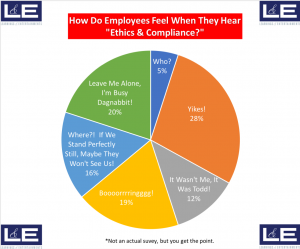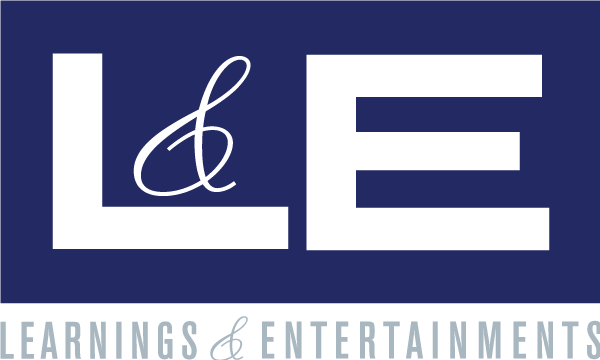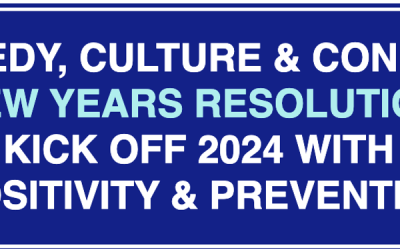A version of this article appears in Corporate Compliance Insights.
You are smart. You’ve got a welcoming smile. You have interesting anecdotes. You’re a snappy dresser and a quick wit. And to top it all off, your role in the organization is to provide guidance, advice and support to help employees navigate the workplace within the rules. This is a noble and worthy cause and it comes with a great irony. You are trying to help them and they resent you.

“Ethics” and “Compliance” are loaded words. By the very nature of the name and title, there is a pre-disposition for employees not to engage. Much of this reputation, frankly, has been earned through a history of boring, check-the-box, mind-numbingly awful, required, preachy, legalese policies and training forced down their throats with little regard towards how they might feel about it. Even if that’s a bit harsh and you have evolved your training and communications to be shorter, more empathetic and engaging, employees are continually entering the organization from elsewhere, where they may not have had such a great experience.
The fact is that you are starting from a disadvantage. You are not playing to a “warm room.” Whether its earned or not, you likely have a vaguely bad reputation. There is a fundamental misunderstanding of your teams role and function. And guess what? People don’t speak up to ask questions and report concerns when they are annoyed, apathetic, or afraid. The old saying is, “people won’t go to the office of no.”
This is the primary challenge ethics and compliance professionals need to solve above all else, before any real success can be achieved. To mitigate risk for your organization, you first have to tackle this reputation problem. This can’t be undone all at once, because it has developed over time. It will require a hard look at all the different ways you and your team train and communicate, and it will require a sustained effort to train and communicate differently over time.
So how do you brand ethics and compliance as a welcoming, helpful, positive resource of advisors and coaches? First, you have to BE a welcoming, helpful, positive resource of advisors and coaches. This doesn’t just include your communication style of how you interact with your business colleagues. It also includes revisiting your training, your policies and your learning resources so they are more welcoming, helpful and positive (i.e., no more lawyer-speak). Then, as advertisers would say, “say it… then say it again.”
To establish a new and improved image requires a sustained communication effort that tells employees you are a welcoming, helpful, positive resource of advisors and coaches and embeds that message throughout the organization.
This message should be consistent and ongoing. Your once-a-year ethics day or compliance week is not enough. It’s also important to be interesting and colorful and to vary how you deliver the message so people don’t tune out. This is all about creating a social environment where employees feel more comfortable speaking up to ask questions and report concerns. So remind them that you are on their side and that you’ve got their back. Speak it loud and proud and say it in provocative ways. And keep it up. And then, slowly but surely, we’ll change the reputation, increase your influence and create the “speak up” culture we all are striving for.




